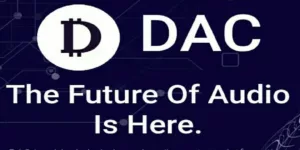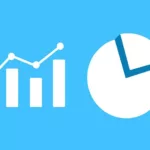The 1920’s had jazz. The 1950’s had rock-n-roll. The 2010’s have “SoundCloud Generation,” the term for the massive community of independent artists who contribute to, curate, and consume music on the streaming site. SoundCloud has facilitated the rise of countless artists who are able to distribute their music without the infrastructure of a record company.
However, this system, while democratizing, also allows for the the artists and content creators to be taken advantage of. In exchange for “exposure,” artists put their music out on the web for free, hoping enough popularity will gain them a record deal or a tour. Additionally, control of music by record labels incentivizes consumers to cut out the middleman and acquire the audio content for free. This creates an incentive and infrastructure for illegal downloading, a practice which ultimately hurts the artist.
This is where DAC Blockchain technology could alter the music industry and change the way artists make and distribute their music forever.
Short for “Decentralized Audio Content” Interactive Platform, DAC hopes to use blockchain technology to empower artists to control the way their music is consumed, and create a model for fair compensation for audio content creators on the internet.
DAC accomplishes this by the innovative use of blockchain technology that allows creators to control and protect their content, while also giving them a secure and efficient way of selling it globally.
The DAC Platform consists of two separate components: DAC Tokens and DAC Power. The most innovative and interesting component of the DAC platform may be the introduction of the DAC Power system. The amount of “DP” one accrues tracks a DAC member’s DAC Influence, a reward system for those that contribute to the community. Contributing content, validating transaction on the blockchain, writing reviews of other users and other community- any value-adding activity- will be rewarded with DP.
This dynamic of DP creates a global, accountable community of artists and those that consumer that consumer their content. Responsible community members will be rewarded, and those that negatively impact the creative, supportive environment will be punished.
DAC Tokens (DT) are the native cryptocurrency of the platform. These tokens will be distributed to those who contribute to the quality and maintenance of the platform and also as a reward for accrued DP. DT will then be able to be exchanged on any crypto market.
This flexible, communally-sourced determination of value will have a unique impact on the pricing system of content. DAC will operate under a transparent algorithm where one’s DP is related to how much exposure one’s content gets. Instead of a mysterious algorithm intended to maximize profit for a centralized vendor, popular, helpful users will be rewarded.
This system will create a dynamic where creators are paid exactly what they are worth, and consumers that pay more will know they are getting content someone the community has reached a positive consensus about.
Could this be the end of music piracy? While the most determined pirates out there will continue to seek out illegally downloaded content, the time-stamped and secure nature of blockchain ensure that IP will be especially hard and legally dubious to swipe from DAC.
Furthermore, those forwarded thinking and artistically minded consumers who frequent sites like SoundCloud to discover new talent and connect with a community will have an easy and convenient way to show their support and patronage for the artists they most enjoy. DAC’s democratic and artist-centered platform may create a culture of responsible music consumption.
The decentralized nature of blockchain ensures that every satoshi of DT will be received by the artist, with none going to third parties or record labels, assuring those that want to patronize their favorite independent artists that their support will be received 100% by the artist. This system also provides content creators with real-time and global feedback on their art, incentivizing artists to create content that their audience will appreciate and perhaps ushering in a more efficient feedback loop between artists and consumer.
This dynamic of exact pricing and valuable services rendered by the DAC Platform to both artist and consumer means that the incentive and ability to illegally stream music may finally be coming to an end.
An an age where consumers were skeptical of labels and pricing was arbitrary, pirating audio content seemed to be the best, if not the most ethical option. However, with DAC, consumers who use the service will be directly helping their favorite artist and also immediately letting them know what they should continue doing with their art.
For the artists, blockchain’s secure nature will protect their IP, while the ability to globally distribute their content under fair and equitable algorithms will allow DAC to attract newer independent artists, as well as more established artists that perhaps want to be able to instantly communicate with their fans.
Will you use DAC?







